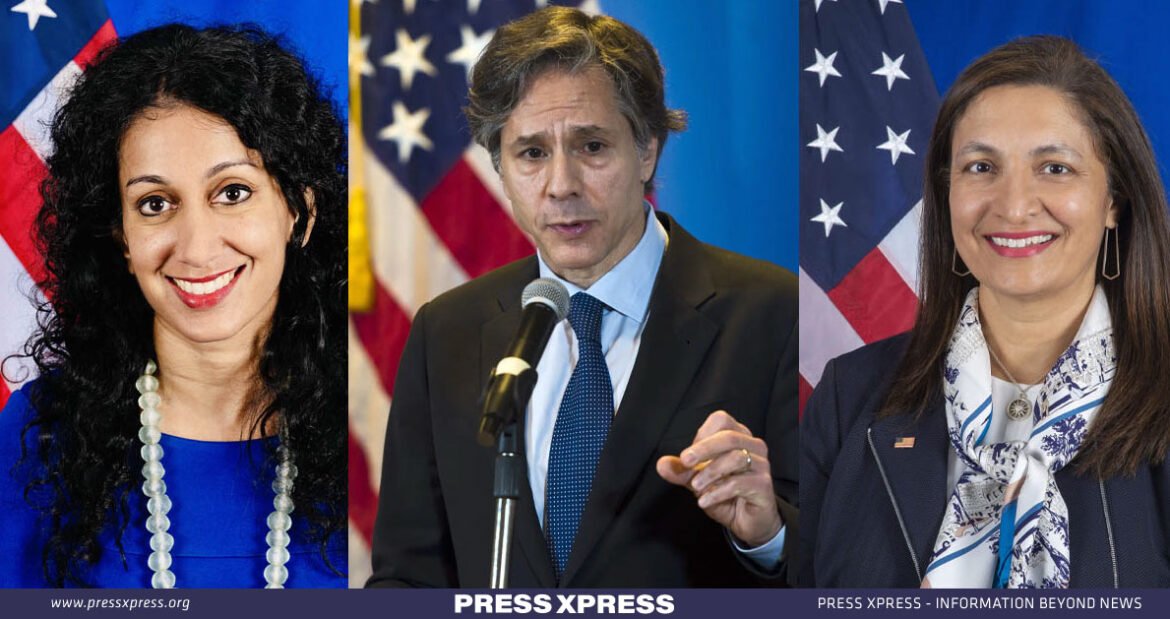Recently, the United States’ unfavorable actions have drawn widespread scrutiny in the lead-up to Bangladesh’s 12th parliamentary elections. Starting with the visa ban and Ambassador Peter Haas’s undiplomatic conduct, political experts suggest a clear bias toward a specific faction. In light of the recent turmoil following the BNP rally on October 28, even European nations, including the United States, find themselves reevaluating their stance on Bangladesh.
Is US undergoing a shift in its stance towards Bangladesh?
Recent developments suggest a departure from its once assertive and cautious position. Instead, there appears to be a sense of disappointment and unease following the political upheaval caused by the BNP’s acts of arson and vandalism. This transformation in the United States’ approach toward Bangladesh is not solely a result of the BNP’s actions but is also influenced by various diplomatic factors. The definitive answer to whether the United States is altering its stance on Bangladesh or maintaining the status quo will come to light on November 10. This date marks a significant event, as US Secretary of State Anthony Blinken is scheduled to meet with the Indian Foreign Minister in a meeting of paramount importance. Furthermore, the visit of the US Defense Minister to New Delhi for crucial discussions suggests that the topic of the Bangladesh elections will hold considerable significance in these diplomatic deliberations.
Numerous diplomatic analysts are contemplating a potential shift in the United States’ stance toward Bangladesh, and there are some primary factors underpin this notion. These factors include:
Middle East Concerns
A significant catalyst for the evolving US approach to Bangladesh is the recent developments in the Middle East. The United States has found its relationship with the Arab countries increasingly stressed, as numerous Muslim-majority nations have adopted stances that are either explicitly or indirectly critical of American policies on Gaza issue. Consequently, there is growing concern about the resurgence of militant Islamic groups within Bangladesh. In light of this, the United States is apprehensive that showing sympathy or support for Bangladesh’s BNP and Jamaat parties might inadvertently fuel the rise of such militant organizations, potentially posing a substantial threat to their interests.
Indian Influence
India’s significance to the United States has further geared up due to developments in the Middle East. India is among the crucial nations that have firmly supported Israel’s stance on Middle East matters. Consequently, India has emerged as a more steadfast and trusted ally of the United States. Given this dynamic, it is speculated that the United States may align its approach in Bangladesh more closely with India’s preferences. This suggests that, for strategic considerations, the United States could potentially revise its prior stance regarding Bangladesh.
BNP’s Missteps
The United States’ prior perception of the BNP and the trust they had placed in the party’s statements are now being challenged. Particularly, the BNP’s involvement in the destructive events of October 28 and its apparent alignment with Jamaat have led the United States to reassess their perspective. The United States is increasingly of the view that the BNP has not upheld its commitments, and its recourse to a path of violence is deemed inappropriate. As a result, there is speculation that the United States might reconsider its stance and approach concerning Bangladesh.

Bangladesh’s Diplomatic Outreach
In recent days, Bangladesh has been actively engaged in diplomatic outreach with the United States, particularly through alternative channels. Through these efforts, Bangladesh has provided a more accurate portrayal of the actual situation to key individuals within the US State Department. As a result of this candid exchange, the United States has come to realize that their previous perceptions of Bangladesh were not entirely accurate, having been influenced to a greater extent by propagandist information. Consequently, the United States is in the process of reassessing its position concerning Bangladesh.
Prospective Business, Trade, and Economic Ties
The United States has undertaken a thorough assessment of the Bangladesh situation, and their analysis reveals that if the Awami League government were to continue in power, it could adopt an increasingly anti-US stance, potentially leading to further restrictions on trade and commerce between the two nations. Bangladesh has already identified alternative markets, enabling it to naturally withstand such pressures. However, the United States stands to lose access to a significant market, and there is no other country from which it can secure textiles at similarly competitive prices, a matter of great concern given the prevailing economic challenges. Consequently, it is widely believed that the United States is shifting from a confrontational stance towards the government to a more conciliatory one.
In conclusion, the United States is in the midst of reconsidering its position on Bangladesh due to a confluence of factors, including Middle East concerns, evolving diplomatic relationships, and the complex landscape of Bangladesh’s political and economic future. The outcome of this reevaluation is anticipated to have a significant impact on the dynamics between the two nations as they navigate a changing geopolitical landscape.


